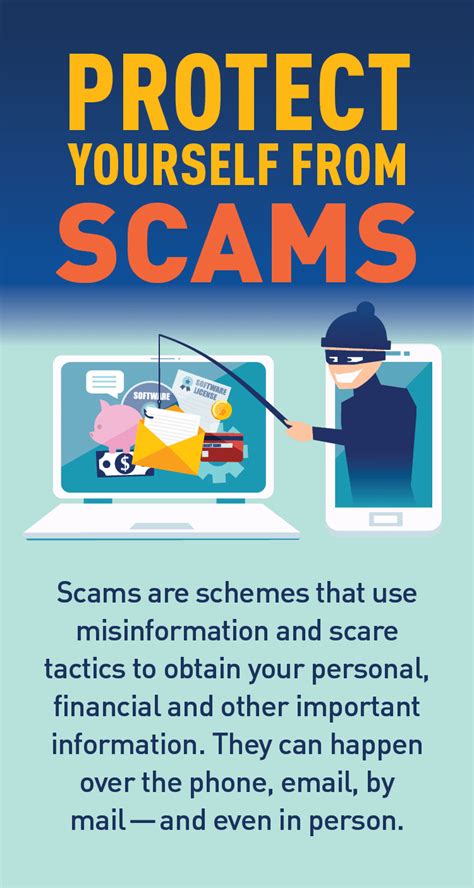Protecting Yourself from Scam Jail Time: A Comprehensive Guide
Scams are pervasive, and their consequences can be devastating. While many scams result in financial loss, some are so elaborate and egregious that they can lead to criminal charges and even jail time. Understanding how these scams operate and taking proactive steps to protect yourself is crucial. This guide will equip you with the knowledge to avoid becoming a victim and the steps to take if you find yourself ensnared.
What are the types of scams that can lead to jail time?
Several types of scams carry the risk of criminal prosecution and imprisonment. These often involve sophisticated schemes designed to defraud individuals or institutions of large sums of money. Some common examples include:
- Advance-fee fraud: This involves promising a significant return (e.g., a loan, investment opportunity, or inheritance) in exchange for an upfront payment. Once the payment is received, the scammer disappears. If the amount defrauded is substantial, you could face charges related to conspiracy or money laundering even if you were the victim.
- Investment scams (Ponzi schemes, pyramid schemes): These fraudulent investment schemes promise high returns with little or no risk. Participating in or promoting such schemes, even unknowingly, can lead to legal repercussions.
- Romance scams: These emotionally manipulative schemes involve building a relationship with a victim online to gain their trust and then defraud them of money. While primarily focused on financial theft, the involvement in laundering the stolen funds could result in criminal charges.
- Identity theft: Stealing someone's identity to commit fraud, open bank accounts, or apply for loans is a serious crime with severe penalties, including lengthy jail sentences.
- Tax fraud: This involves filing false tax returns or engaging in other schemes to avoid paying taxes. Large-scale tax fraud carries significant legal consequences.
- Insurance fraud: Falsely claiming insurance benefits or deliberately causing damage to collect insurance money is a crime with potential jail time.
- Employment scams: These scams often involve promising a job in exchange for upfront fees or personal information. They can lead to identity theft and other legal problems.
How can I protect myself from becoming involved in scams that could lead to jail time?
Proactive measures are key to avoiding involvement in scams that can result in criminal charges. Here are some vital steps:
- Be wary of unsolicited offers: Legitimate businesses rarely solicit funds or personal information through unsolicited emails, phone calls, or text messages.
- Verify information independently: Don't rely solely on information provided by the scammer. Research the company or individual online and verify their legitimacy through official channels.
- Never send money upfront: Legitimate businesses will never ask for payment before providing goods or services.
- Protect your personal information: Be cautious about sharing sensitive information online or over the phone. Use strong passwords and monitor your accounts regularly.
- Report suspicious activity: If you suspect a scam, report it to the appropriate authorities immediately.
- Consult a legal professional: If you're facing potential legal trouble due to a scam, seek legal advice as soon as possible.
What should I do if I think I'm involved in a scam?
If you suspect you might be involved in a scam, taking swift action is vital.
- Stop all communication: Immediately cease all contact with the scammer.
- Document everything: Keep records of all communications, transactions, and any other relevant information.
- Report the scam: Contact your local law enforcement agency, the Federal Trade Commission (FTC), and any other relevant authorities.
- Secure your accounts: Change your passwords and monitor your accounts for suspicious activity.
- Seek legal counsel: Consult with a lawyer to discuss your options and protect your legal rights.
What happens if I am charged with a crime related to a scam?
Facing criminal charges related to a scam is a serious matter. You will need to work with a qualified legal professional to build a robust defense strategy. This might involve:
- Understanding the charges: Your lawyer will explain the specific charges against you and the potential penalties.
- Gathering evidence: Your lawyer will help you gather evidence to support your defense.
- Negotiating with the prosecution: Your lawyer may negotiate with the prosecution to reach a plea bargain or reduce the charges.
- Going to trial: If a plea bargain cannot be reached, your lawyer will represent you at trial.
Frequently Asked Questions
Can I go to jail for being scammed?
Generally, being scammed doesn't lead to jail time. However, if your involvement in a scheme extends beyond being a victim—for example, if you knowingly participated in laundering money or actively helped defraud others—you could face criminal charges.
What is the punishment for scam-related crimes?
Penalties vary depending on the severity and nature of the crime, but they can range from fines to lengthy prison sentences, along with restitution to victims. The more extensive the fraud, the harsher the potential penalties.
How can I avoid being scammed in online investments?
Always thoroughly research investment opportunities before investing. Look for registered investment advisors and be wary of promises of unusually high returns with minimal risk. Never invest money you can't afford to lose.
This comprehensive guide highlights the dangers of scams and provides actionable strategies for avoiding involvement and navigating legal repercussions. Remember, prevention is the best defense, but if you find yourself in a difficult situation, seeking professional legal advice is crucial. This information is for educational purposes and should not be considered legal advice. Consult with a qualified legal professional for any legal issues.

